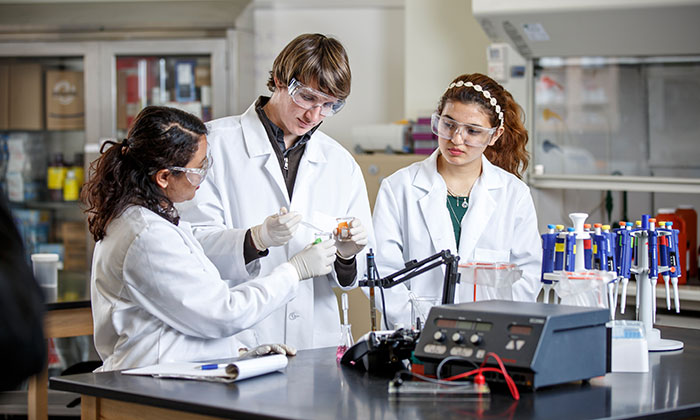You might be surprised to know that an increasing number of Sociology degree recipients are applying to pre-med programs and pursuing their doctoral degrees in what was previously considered to be a path exclusively for Biology majors.
Despite its basis in social sciences, an undergraduate degree in Sociology is highly versatile and can lend itself to a wide variety of career paths and advanced programs like pre-med. Here’s why!
Understanding the basis of sociological thought
Defined by the American Sociological Association, sociology is the study of society — a social science involving the study of the social lives of people, groups and societies. It’s the study of our behavior as social beings, covering everything from the analysis of short contacts between anonymous individuals on the street to the study of global social processes.
There are many accomplished people with degrees (of varying levels of advancement) in this field. The American Sociological Association highlights these professionals and pioneers who earned their degree in Sociology and went on to work in STEM-related industries. For instance, Diane Vaughn is a public sociologist whose research contributed to improving NASA after several space shuttle disasters.
Sociology helps pre-med students understand the “social determinants of health”
Sociology teaches students to study human behavior and patterns, fostering their ability to make connections and see the bigger picture, which are both necessary skills when working in the medical field. For instance, it offers students a strong foundation in understanding health issues from a social and behavioral standpoint. It also provides a great background for students who want to be better prepared to learn about social and behavioral determinants of health and to promote a more nuanced examination of how personal and group identities influence professional development and behavior.
Sociology accounts for a large portion of recent revisions of the MCAT exam
Of course, in order to translate a Sociology degree into a pre-med pathway, students will need to take additional science courses and pass the MCATs. Biology is only one of the many integrated subjects tested on the MCAT. But in recent revisions of the MCAT, sociology accounts for a greater portion of the test, with an in-depth look at the social, psychological and behavioral sciences.
Majoring in Sociology can help prepare you for the MCAT because with the MCAT being revised to cover foundational knowledge of behavioral and social science concepts, 30 percent of the new section will stem from sociology. In addition to their in-depth and integrated understanding of the human person, this gives Sociology majors an advantage in pursuing medical degrees.
Sociology challenges you to examine the factors that shape everyday life and question what is often taken for granted. If you’re interested in making a tangible difference in the world, including in a health-focused field, it could be the perfect field of study for you. We encourage you to request more information today and visit our program page!





